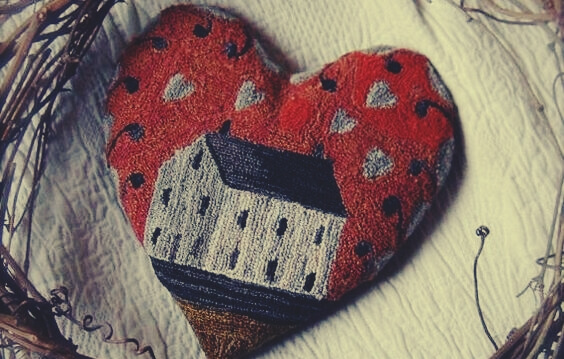7 Ingredients of Happiness


We all want to be happy, but we don’t always know exactly how to explain what it is. Some people think it’s all about getting something: a relationship, a material possession, a job, etc. But the truth is that the ingredients of happiness are in everyone’s reach, because they’re growing inside you.
“Happiness consists more in the small conveniences of pleasures that occur every day, than in great pieces of good fortune that happen but seldom to a man in the course of his life.”
-Benjamin Franklin-
So happiness isn’t something you get, or lose, because it’s actually an attitude you create. And to do that, the important thing is to learn what it can give you. These are 7 ingredients of happiness, and we all have access to them.
1. Forgiving yourself: the first ingredient of happiness
We all blame ourselves for our mistakes and failures. For being one particular way, or for not being another. In the end, that blame doesn’t do anything for you. All it does is turn you into an unhappy, insecure person.

Well then the first ingredient of happiness is to say no to blaming yourself. You have to learn to be your own best friend. But that’s impossible if you don’t forgive yourself and accept that mistakes and mess-ups are actually very valuable. They’re the main way you can keep on learning and growing.
2. Exploring, experiencing new things
It’s normal for us to have the tendency to create repetitive lifestyles. These are the kind that keep you from having to confront new things all the time. And it helps you feel stable, which saves you from spending a ton of emotional energy.
The problem is that if you get rid of new things in your life, it won’t take long to feel dull and unmotivated. On top of that you’ll end up getting stuck in one place. So you should always leave yourself space to explore, to face up to new things. This is an undeniable ingredient of happiness.
3. Doing physical and creative activity
Physical activity is more than just a tool to keep up your health. The positive impact of exercise on your brain and mood is a proven fact. Happiness is also a feeling related to neurochemicals, and that’s a good thing to be aware of. Periodical exercise can be a big help when it comes to preventing low, negative moods.

It’s similar with creative and recreational activities. As humans we need to make room for expression, imagination, and creativity. It won’t be easy to feel happy if you deprive yourself of those things.
4. Simplifying life
Another one of the main ingredients of happiness is learning to simplify your life. This means having an understanding of what’s truly important and what’s not. It means knowing to dedicate time to things that are worth the effort and not wasting it in neurotic situations.
Simplifying your life also has to do with learning to find effective solutions. Don’t fill up your plate with unnecessary problems. Clear your path of all those small obstacles. That way you’ll have the kind of energy you need for the biggest challenges.
5. Learning to control impulses
One of the ingredients of happiness is spontaneity. But you shouldn’t confuse that concept with letting yourself get carried away by any impulse you feel. Self-control takes some effort, but it has very sweet rewards if you can manage it.

We all have access to meditation techniques nowadays. They’re a wonderful way to learn to process your emotions, especially in a way that keeps them from being invasive. You’ll definitely be happier when you gain the ability to act based on reason instead of acting on your impulses.
6. Finding and maintaining constructive friendships
Friendship is one of life’s most beautiful bonds. And that’s because so much of it is free and spontaneous. True friendships come from a place of common ground. You make your own choice to give yours and accept theirs. There are no commitments and if you maintain your friendship over time it’s because of your personal free will.
People constantly talk about how friendship is a treasure. And that’s because it is. Friends are an important factor to help you boost your self-reinforcement, self-knowledge, and self-value. They teach you to listen and be supportive. They’re your best company in an endless amount of time.
7. Being kind to yourself and feeling grateful
Being kind to yourself means accepting yourself, putting up with your defects, and forgiving yourself (like we mentioned before). It also means taking care of yourself, protecting yourself, not forgetting your achievements, and picking yourself up during hard times. It means constantly reminding yourself you have the right to be happy.

Gratitude is a wonderful virtue because it ends up leading to huge benefits for anyone who feels it. Only someone who values the good things in their life can be grateful. And anyone who knows how to value that will be happy. When you feel grateful for it, your happiness just grows more.
You create the ingredients of your happiness. They don’t fall from the sky, and you don’t just happen upon them in some corner of life. That’s a beautiful truth. It reminds you how no one but you is in control of your happiness.

We all want to be happy, but we don’t always know exactly how to explain what it is. Some people think it’s all about getting something: a relationship, a material possession, a job, etc. But the truth is that the ingredients of happiness are in everyone’s reach, because they’re growing inside you.
“Happiness consists more in the small conveniences of pleasures that occur every day, than in great pieces of good fortune that happen but seldom to a man in the course of his life.”
-Benjamin Franklin-
So happiness isn’t something you get, or lose, because it’s actually an attitude you create. And to do that, the important thing is to learn what it can give you. These are 7 ingredients of happiness, and we all have access to them.
1. Forgiving yourself: the first ingredient of happiness
We all blame ourselves for our mistakes and failures. For being one particular way, or for not being another. In the end, that blame doesn’t do anything for you. All it does is turn you into an unhappy, insecure person.

Well then the first ingredient of happiness is to say no to blaming yourself. You have to learn to be your own best friend. But that’s impossible if you don’t forgive yourself and accept that mistakes and mess-ups are actually very valuable. They’re the main way you can keep on learning and growing.
2. Exploring, experiencing new things
It’s normal for us to have the tendency to create repetitive lifestyles. These are the kind that keep you from having to confront new things all the time. And it helps you feel stable, which saves you from spending a ton of emotional energy.
The problem is that if you get rid of new things in your life, it won’t take long to feel dull and unmotivated. On top of that you’ll end up getting stuck in one place. So you should always leave yourself space to explore, to face up to new things. This is an undeniable ingredient of happiness.
3. Doing physical and creative activity
Physical activity is more than just a tool to keep up your health. The positive impact of exercise on your brain and mood is a proven fact. Happiness is also a feeling related to neurochemicals, and that’s a good thing to be aware of. Periodical exercise can be a big help when it comes to preventing low, negative moods.

It’s similar with creative and recreational activities. As humans we need to make room for expression, imagination, and creativity. It won’t be easy to feel happy if you deprive yourself of those things.
4. Simplifying life
Another one of the main ingredients of happiness is learning to simplify your life. This means having an understanding of what’s truly important and what’s not. It means knowing to dedicate time to things that are worth the effort and not wasting it in neurotic situations.
Simplifying your life also has to do with learning to find effective solutions. Don’t fill up your plate with unnecessary problems. Clear your path of all those small obstacles. That way you’ll have the kind of energy you need for the biggest challenges.
5. Learning to control impulses
One of the ingredients of happiness is spontaneity. But you shouldn’t confuse that concept with letting yourself get carried away by any impulse you feel. Self-control takes some effort, but it has very sweet rewards if you can manage it.

We all have access to meditation techniques nowadays. They’re a wonderful way to learn to process your emotions, especially in a way that keeps them from being invasive. You’ll definitely be happier when you gain the ability to act based on reason instead of acting on your impulses.
6. Finding and maintaining constructive friendships
Friendship is one of life’s most beautiful bonds. And that’s because so much of it is free and spontaneous. True friendships come from a place of common ground. You make your own choice to give yours and accept theirs. There are no commitments and if you maintain your friendship over time it’s because of your personal free will.
People constantly talk about how friendship is a treasure. And that’s because it is. Friends are an important factor to help you boost your self-reinforcement, self-knowledge, and self-value. They teach you to listen and be supportive. They’re your best company in an endless amount of time.
7. Being kind to yourself and feeling grateful
Being kind to yourself means accepting yourself, putting up with your defects, and forgiving yourself (like we mentioned before). It also means taking care of yourself, protecting yourself, not forgetting your achievements, and picking yourself up during hard times. It means constantly reminding yourself you have the right to be happy.

Gratitude is a wonderful virtue because it ends up leading to huge benefits for anyone who feels it. Only someone who values the good things in their life can be grateful. And anyone who knows how to value that will be happy. When you feel grateful for it, your happiness just grows more.
You create the ingredients of your happiness. They don’t fall from the sky, and you don’t just happen upon them in some corner of life. That’s a beautiful truth. It reminds you how no one but you is in control of your happiness.
This text is provided for informational purposes only and does not replace consultation with a professional. If in doubt, consult your specialist.







